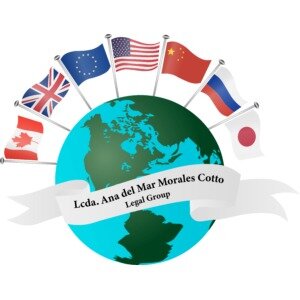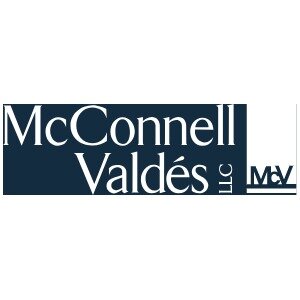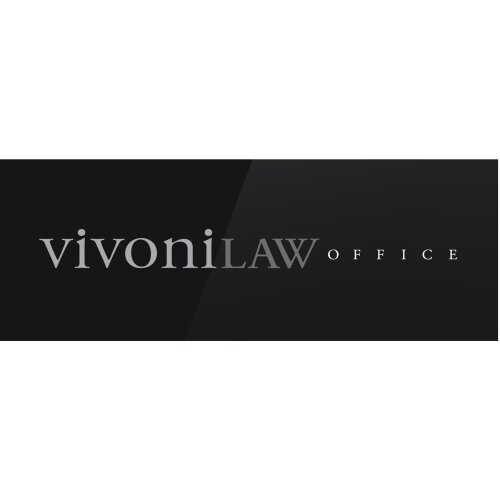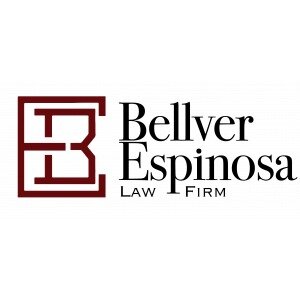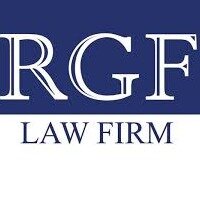Best Funds & Asset Management Lawyers in Puerto Rico
Share your needs with us, get contacted by law firms.
Free. Takes 2 min.
Or refine your search by selecting a city:
List of the best lawyers in Puerto Rico
About Funds & Asset Management Law in Puerto Rico
Funds and asset management law in Puerto Rico governs the regulation, operation, and oversight of investment funds, hedge funds, mutual funds, private equity, and the management of assets on behalf of individual and institutional investors. Puerto Rico has developed a robust framework for financial services, driven in part by its unique tax incentives and position as a U.S. territory. This framework covers fund formation, compliance requirements, investment advisory services, and the responsibilities of fund managers and fiduciaries. Both local and U.S. federal laws apply, making the legal environment dynamic and sometimes complex for investors, fund managers, and service providers alike.
Why You May Need a Lawyer
Navigating the legal landscape of funds and asset management in Puerto Rico can be complex. Here are some common situations where legal guidance is essential:
- Forming a new investment fund or launching an asset management business
- Ensuring compliance with Puerto Rican and U.S. federal laws and regulations
- Drafting and reviewing fund offering documents, partnership agreements, and investor disclosures
- Structuring funds to maximize tax incentives under Puerto Rico’s unique statutes
- Addressing cross-border investment and securities law issues
- Handling disputes between fund managers, investors, or regulatory bodies
- Assisting with registration, licensing, and ongoing reporting requirements
- Advising on anti-money laundering compliance and due diligence obligations
- Guiding on the acquisition or sale of portfolio assets
- Ensuring proper governance and fiduciary duties are upheld at all times
Local Laws Overview
Funds and asset management activities in Puerto Rico are primarily influenced by a combination of local statutes and U.S. federal laws, with a focus on investor protection and regulatory transparency. Significant local laws include:
- Puerto Rico Investment Company Act - Sets requirements for investment companies, fund formation, offering of securities, and ongoing compliance obligations unique to Puerto Rico.
- Act 60 (formerly Acts 20 and 22) - Provides valuable tax incentives for eligible businesses and individual investors who set up funds or move their asset management activities to Puerto Rico.
- Puerto Rico Securities Act - Regulates the offering, sale, and management of securities, with registration, exemption, and anti-fraud provisions.
- U.S. federal regulations (e.g., SEC rules, Investment Company Act of 1940, Investment Advisers Act of 1940) - Apply to many funds and managers operating from Puerto Rico due to its status as a U.S. territory, creating dual compliance responsibilities.
- Anti-money laundering (AML) and Know Your Customer (KYC) rules - Establish due diligence expectations for fund operators and asset managers.
- Local licensing requirements for investment advisors and broker-dealers registered in Puerto Rico.
It is essential to understand how these laws interact and what exemptions or tax benefits may be available for specific fund structures.
Frequently Asked Questions
What is the process for starting a fund in Puerto Rico?
Forming a fund involves registering the legal entity, preparing offering documents, meeting regulatory requirements under local and U.S. laws, and complying with relevant tax and securities regulations. Legal counsel ensures all steps are properly executed.
Do Puerto Rico-based funds qualify for U.S. federal exemptions?
Some funds organized in Puerto Rico may qualify for U.S. federal exemptions, such as private offering exemptions. However, every case is unique, and close analysis of activities and investors is critical.
What are the main tax incentives for funds and asset managers in Puerto Rico?
Under Act 60, qualifying funds and managers may enjoy reduced tax rates, capital gains exemptions, and favorable treatment of certain investment income. Detailed eligibility rules apply and must be carefully followed.
What licenses or approvals are needed to operate a fund?
Depending on the fund’s activities and investor base, licenses may be needed from the Office of the Commissioner of Financial Institutions (OCIF), along with possible registration or exemption filings with the SEC and other authorities.
Are Puerto Rico funds subject to U.S. securities laws?
Generally, yes. Puerto Rico funds offering interests to U.S. persons must navigate both local and U.S. federal securities laws, including registration, reporting, and anti-fraud provisions.
How can investors be protected when investing in Puerto Rico funds?
Strong regulatory oversight, disclosure requirements, and fiduciary duties of fund managers provide investor protections. Diligence in reviewing documents and working with reputable managers adds a layer of safety.
What disclosures must be made to investors?
Funds must provide detailed offering memoranda, risk disclosures, fee structures, investment strategies, and information on management. Regulatory filings may also be required for transparency.
What is the role of OCIF in funds and asset management?
The Office of the Commissioner of Financial Institutions (OCIF) oversees licensing, regulatory compliance, and enforcement for funds, advisors, and investment companies operating in Puerto Rico.
Are there special considerations for offshore investors?
Yes. Funds must consider U.S. securities laws, local regulations, and tax implications for offshore investors, often requiring separate share classes or alternative structures.
How often do funds need to file reports or undergo audits?
Reporting frequency depends on fund type and regulatory classification. Many funds must file annual or quarterly reports and may require independent audits to ensure compliance and transparency.
Additional Resources
Below are useful resources and organizations related to funds and asset management law in Puerto Rico:
- Office of the Commissioner of Financial Institutions (OCIF) - Main regulator for local investment funds and advisors
- Puerto Rico Department of Economic Development and Commerce - Provides information on Act 60 incentives and business establishment
- Puerto Rico Securities Division - Oversees local securities regulation and registration
- U.S. Securities and Exchange Commission (SEC) - Regulates U.S. securities markets and oversees certain Puerto Rico entities
- Puerto Rico Chamber of Commerce - Offers guidance and connects businesses with financial and legal professionals
- Local Bar Associations and Certified Public Accountants Associations - Source for referrals and educational materials
Next Steps
If you are considering forming a fund, launching an asset management business, or investing in Puerto Rico, it is crucial to consult with a lawyer experienced in funds and asset management law. Here are your next steps:
- Identify your goals and gather relevant information about your planned activities and investment structure.
- Consult with a qualified lawyer who understands both Puerto Rico and U.S. federal laws applicable to funds and asset management.
- Work with your legal advisor to conduct due diligence, assess eligibility for tax incentives, and outline necessary compliance actions.
- Ensure you understand your disclosure obligations and the steps required for registration, licensing, and reporting.
- Maintain ongoing communication with your legal team to address any changes in laws, regulations, or fund activities.
Taking these proactive steps will help safeguard your interests, ensure compliance, and allow your fund or asset management project to thrive in Puerto Rico’s attractive financial environment.
Lawzana helps you find the best lawyers and law firms in Puerto Rico through a curated and pre-screened list of qualified legal professionals. Our platform offers rankings and detailed profiles of attorneys and law firms, allowing you to compare based on practice areas, including Funds & Asset Management, experience, and client feedback.
Each profile includes a description of the firm's areas of practice, client reviews, team members and partners, year of establishment, spoken languages, office locations, contact information, social media presence, and any published articles or resources. Most firms on our platform speak English and are experienced in both local and international legal matters.
Get a quote from top-rated law firms in Puerto Rico — quickly, securely, and without unnecessary hassle.
Disclaimer:
The information provided on this page is for general informational purposes only and does not constitute legal advice. While we strive to ensure the accuracy and relevance of the content, legal information may change over time, and interpretations of the law can vary. You should always consult with a qualified legal professional for advice specific to your situation.
We disclaim all liability for actions taken or not taken based on the content of this page. If you believe any information is incorrect or outdated, please contact us, and we will review and update it where appropriate.
Browse funds & asset management law firms by city in Puerto Rico
Refine your search by selecting a city.



